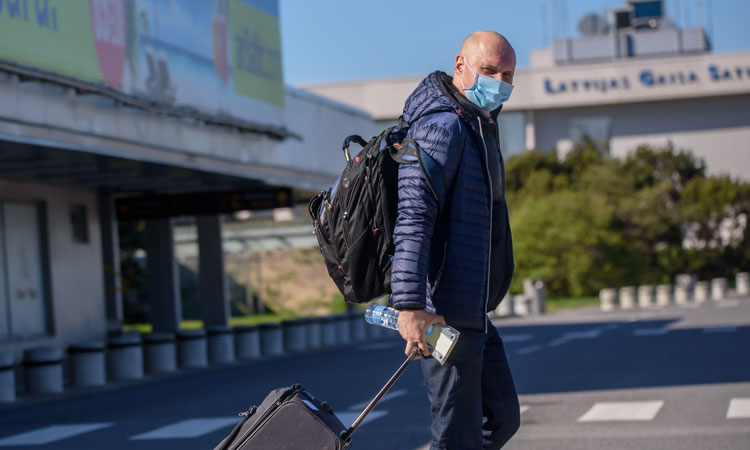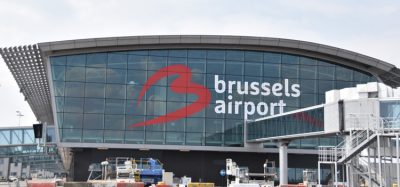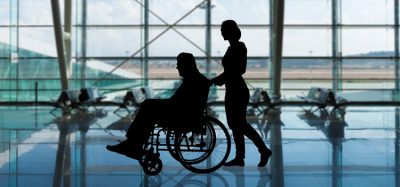Riga Airport joins EASA COVID-19 prevention charter
Posted: 7 July 2020 | International Airport Review | No comments yet
The EASA Charter, which has currently been signed by 22 European airports and airport operators, includes the certification of the members’ ability to ensure the highest epidemiological safety standards and provides information exchange to improve the joint industry measures aimed at ensuring maximum safety during the global pandemic.


Riga Airport has joined the EASA Charter to help prevent the spread of COVID-19, demonstrating that the airport is ready to work according to the highest aviation epidemiological safety standards and cooperate to reduce the risk of spreading the disease.
Chairperson of the Board of Riga Airport, Laila Odiņa, emphasised: “Passenger safety and health is our utmost priority. Since the beginning of the pandemic, Riga Airport has invested a lot of effort in improving both passenger and aircraft service processes, as well as the airport’s infrastructure, in order to reduce the risk of spreading the disease. By joining the EASA Charter, the airport demonstrates its readiness to act and cooperate with others in order to ensure that air travel is as safe as possible and our passengers are protected.”
Joining the Charter is a testimony to the fact that the epidemiological safety programme #NeļaujVīrusamCeļot (Forbid the virus from travelling) introduced at Riga Airport in May 2020 corresponds to the EASA-ECDC Aviation Health Safety Protocol. The document contains the scientifically-grounded guidelines designed by EASA and the European Centre for Disease Prevention and Control (ECDC) for airports and airlines regarding the introduction of measures for reducing COVID-19 risks.
Join us live: Shaping the Next Generation of Hold Baggage and Air Cargo Screening
Join us live for an insightful webinar on 11th December at 14:00 GMT, in collaboration with Smiths Detection, as we explore the strategic balance of operational efficiency, regulatory compliance, and sustainability in high-volume security environments.
This session offers a focused look into future-proofing your security strategy.
Key learning points
- Cost Reduction: Strategies to minimize bag travel time while simultaneously reducing operational costs.
- Regulatory Roadmap: Insights into the next wave of regulatory changes and their impact on future investment decisions.
- Sustainable Systems: Practical approaches to building sustainability into security systems and lowering the total cost of ownership (TCO).
- Scalable Solutions: Real-world examples of scalable systems supporting current airport growth and preparing for tomorrow.
Register now for expert insights, case studies, and actionable strategies on operational efficiency!
The Charter also provides weekly information and data exchanges between the members of the Charter and EASA. By analysing the information provided on the increase of passenger flow intensity and the incidence and spread of the disease, EASA is going to evaluate the efficacy of the measures introduced and, if necessary, will be able to respond to the current situation fast.
By now, the EASA Charter has been signed by more than 40 European airports and airlines.
At the airport, passengers are required to wear a medical mask and are provided with the opportunity to observe more vigilant hand hygiene and physical distancing wherever possible.
Employee protection measures have also been implemented, and additional cleaning and disinfection measures are taken at the airport.
Stay Connected with International Airport Review — Subscribe for Free!
Get exclusive access to the latest airport and aviation industry insights from International Airport Review — tailored to your interests.
✅ Expert-Led Webinars – Gain insights from global aviation leaders
✅ Weekly News & Reports – Airport innovation, thought leadership, and industry trends
✅ Exclusive Industry Insights – Discover cutting-edge technologies shaping the future of air travel
✅ International Airport Summit – Join our flagship event to network with industry leaders and explore the latest advancements
Choose the updates that matter most to you.
Sign up now to stay informed, inspired, and connected — all for free!
Thank you for being part of our aviation community. Let’s keep shaping the future of airports together!
Related topics
Airport crisis management, COVID-19, Regulation and Legislation, Safety

















